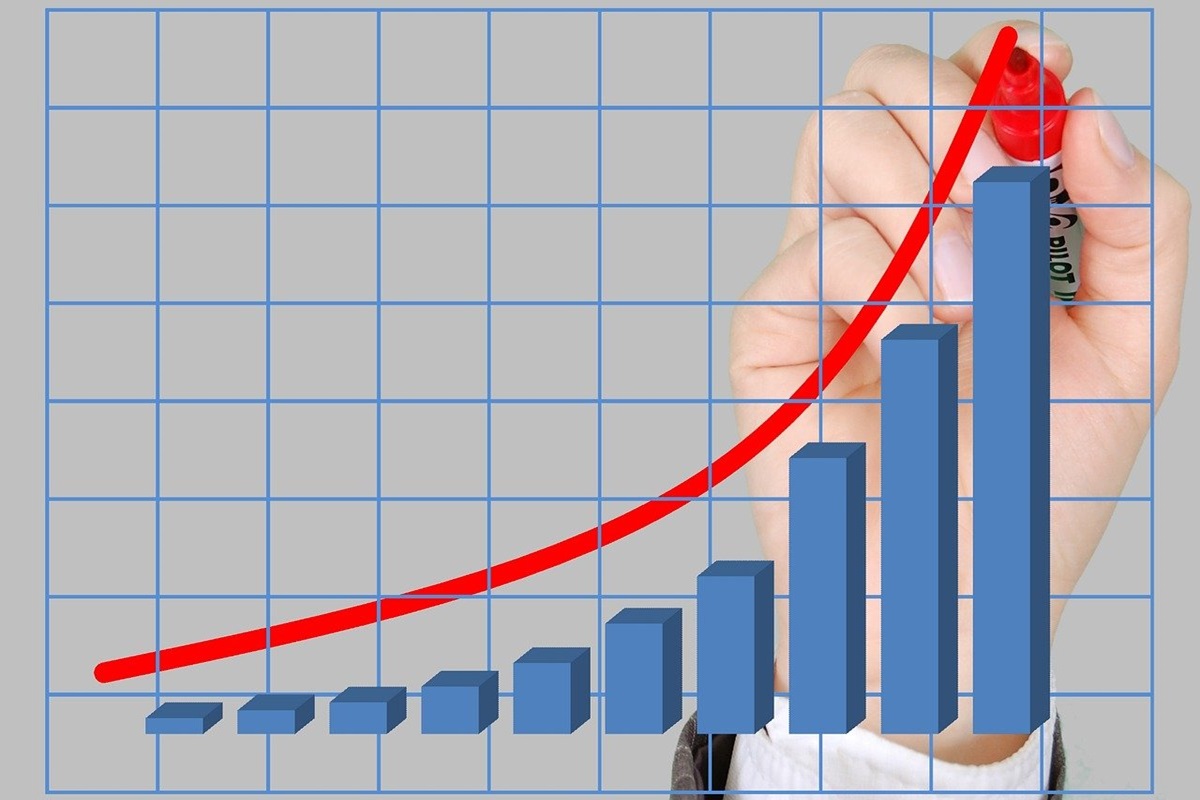The economy of the United Kingdom left the territory of the materialization of the negative recession scenario ahead of the time that experts and analysts predicted.

The gross domestic product (GDP) of the mentioned country for the first quarter of the current year showed an increase of 0.7% compared to the result for the same period in 2023. The relevant information was published by the Office for National Statistics on Friday, June 28. It is worth noting that the previous estimate of GDP growth in the United Kingdom provided for an increase in the corresponding indicator by 0.6%. The data that was released on Friday is revised.
Having left the space of realization of the negative recession scenario, the economic reality of the United Kingdom has moved to the limits of its configuration, which demonstrates the most rapid growth in more than two years. It is worth noting that the corresponding result is due to the state of affairs in the service sector and is also partially related to the dynamic of consumer spending.
Most economists did not expect the GDP data in the United Kingdom to be revised.
The information released on Friday is positive for UK Prime Minister Rishi Sunak. In this case, it is implied that the data on dynamic GDP for the first quarter of the current year are what can be described as a fact-supported argument in favor of the reliability and fairness of his claims that the economic system of the United Kingdom overcame the crisis situation after a mild downturn in 2023. Positive information is especially valuable for Rishi Sunak in the context of the fact that parliamentary elections will be held in the UK next week. It is worth noting that the economic situation is one of the most important factors influencing the formation of the perception of the authorities by the population. A high level of material well-being increases the likelihood that society will positively assess the functioning of the political system that is operating in a particular country in a particular historical period.
At the same time, positive data on the dynamic GDP for the first quarter of the current year is unlikely to be a significant advantage for Rishi Sunak and his Conservative Party in the upcoming elections. The media note that the results of preliminary opinion polls on the attitude of the society to the present political course of London indicate that Keir Starmer’s Labour Party has much more supporters in the UK compared to the Conservatives.
The Bank of England predicts that the economy of the United Kingdom will be on a stable growth trajectory for the rest of the current year. The financial regulator explains the realism of the corresponding scenario by saying that consumers will benefit from an increase in wages and a reduction in pressure on the cost of living.
Services output in the United Kingdom increased by 0.8% year-on-year in January-May 2024. It is worth noting that before the revision, this indicator was fixed at 0.7%. Also important in this case is the fact that during the previous three quarters, services output was on a downward trajectory. The growth of the mentioned indicator is associated with professional services and scientific research and development. Moreover, the Office for National Statistics reported an increase in trade and consumer spending.
In terms of per person, the economic system of the United Kingdom for January-May of the current year also showed growth. GDP per person increased by 0.5% year-on-year. Before the revision, the corresponding indicator was at 0.4%. It is worth noting that GDP per person had not shown any growth for seven consecutive quarters. In this case, there is also a nuance, which in a sense negates the positive dynamic of the first quarter of 2024. The Office for National Statistics clarified that GDP per person is still 0.6% lower than a year ago.
There is also an increase in living standards in the United Kingdom. It is worth noting that the corresponding positive dynamic has been recorded for two consecutive quarters. Currently, this figure is the highest since the second half of 2021. The corresponding result is due to an increase in salaries and a reduction in taxes. Adjusted for inflation in January-March 2024, household disposable income per person in the United Kingdom increased by 0.5% year-on-year. It is worth noting that in the fourth quarter of last year, this indicator increased by 0.4%.
As above-mentioned, data on the dynamic GDP in the United Kingdom in the first quarter of the current year will most likely not become a powerful argument in favor of the Conservatives in the framework of the elections, but representatives of this political force will probably use a positive economic indicator to improve their positions in the electoral environment. It is still unknown how effective these efforts will be. At the same time, it is almost obvious that the positive GDP data in the United Kingdom for the first quarter of the current year will not be a factor that will ultimately determine the election results.
Paul Dales, chief UK economist at Capital Economics, says the information released on Friday is good news for whoever takes over as UK prime minister next week. The expert also noted that the economic system of the United Kingdom may turn out to be slightly stronger compared to preliminary estimates of its condition.
The strengthening of the UK economy’s growth may likely lead to an intensification of the Bank of England’s concern about the continuing inflationary pressure. If this assumption is materialized in the space of objective reality, the financial regulator will postpone to a later date the decision to ease monetary policy, which implies lowering the cost of borrowing. It is worth noting that the Bank of England has not cut interest rates since the coronavirus pandemic. The position of the financial regulator on the issue of monetary policy easing is based on an approach that provides for special caution. It is worth noting that the Federal Reserve is also in no hurry to decide on the beginning of lowering the cost of borrowing. There is a kind of consensus among officials of the central bank of the United States, according to which, to begin implementing the concept of monetary policy easing, more information should be obtained indicating that the dynamic of the inflationary process is moving towards the target. At the same time, some financial regulators have already started cutting interest rates. For example, the relevant decision was made by the European Central Bank. It is widely believed among experts that the next lowering of borrowing in Europe is not a prospect for the near future. The Swiss National Bank has also begun to ease monetary policy.
Currently, interest rates in the United Kingdom are 5.25%. This figure is the highest in the last 16 years.
The markets actually ignored the data released on Friday on the dynamic GDP in the United Kingdom in the first quarter of the current year. The pound sterling exchange rate did not show any changes against the background of the mentioned news. Also, new expectations regarding the most likely timing of the beginning of monetary policy easing by the Bank of England did not spread in the market. Currently, investors are admitting the possibility that the financial regulator will lower the cost of borrowing in September.
Paul Dales says that GDP data for the first quarter of 2024 may reduce the Bank of England’s confidence in the expediency of cutting interest rates in August.
It is worth noting that currently, the economic system of the United Kingdom demonstrates the least intensive pace of recovery after the severe period of the coronavirus pandemic among all the G7 countries, except for Germany, where the corresponding growth was 1.8% since the end of 2019. In the United States, the mentioned growth for four and a half years was recorded at 8.6%.
Wages in the United Kingdom are increasing faster than the pace of the similar upward dynamic of prices. In the context of this process, the financial condition of households is being restored, which in 2022 faced such negative economic circumstances as a sharp rise in energy prices and double-digit inflation. Currently, the United Kingdom is expected to continue to increase the minimum wage and the state pension. It’s worth noting that in April, welfare payments increased in the UK, and payroll taxes decreased. At the same time, real incomes may still not exceed the level that was observed before the last elections in 2019.
There are yet signs of cautious behavior in the UK consumer community. After a period of difficult situation in the space of economic reality, UK residents are in no hurry to make significant adjustments to their expenses in the framework of the concept of actions typical for more favorable periods. The savings ratio, which shows the amount of disposable income that people choose not to spend, rose to 11.1% in the first quarter of 2024. It is worth noting that this indicator is the highest since the second quarter of 2021. At the same time, there is a tendency in the United States to increase consumer spending.
The Bank of England expects the UK economy to grow by 0.5% in the second quarter of the current year. This forecast provides for a faster dynamic of the mentioned process compared to the previous version of the vision of its intensity.
The current account deficit, the difference between money leaving the UK and money coming in, has narrowed to 21 billion pounds ($26.5 billion), or 3.1% of GDP. Excluding precious metals, the flows of which may be unstable, the deficit decreased by 2.5 billion pounds, amounting to 23.8 billion pounds. In this case, the shrinking of the trade deficit became an impact factor.
Danni Hewson, head of the AJ Bell Financial Analysis, says that economic growth has always been one of the central themes of political party manifestos, even if there are differences in explaining the reasons for the positive dynamic. The expert noted that the economy, which is on an upward trajectory, generates wealth, puts more money in people’s pockets, and increases the amount of taxes delivered to the treasury.
Sophie Lund-Yates, lead equity analyst at Hargreaves Lansdown, says that stronger-than-expected GDP growth doesn’t help those looking for a faster route to cutting interest rates, but it does help to boost overall optimism. The expert also noted that deep-seated productivity problems in the United Kingdom as a whole provoke greater concern than the immediate prospects for changes in the cost of borrowing.









